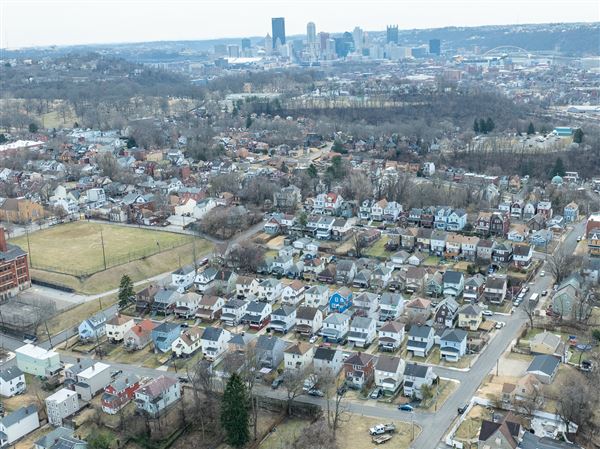Municipalities served by the Allegheny County Sanitary Authority have been granted more time to incorporate “green infrastructure” and other strategies into plans to fix the region’s overflowing sewer systems.
Allegheny County, Pittsburgh and more than 40 of Alcosan’s 83 customer municipalities sent letters to the state Department of Environmental Protection in recent months requesting the extension of a 2003 consent order that expired Monday.
The DEP, in a letter dated Friday and released publicly Monday, said it would grant a two-phase extension: 18 months to produce a green infrastructure or source reduction study, and then additional time to implement the plans, said DEP spokesman John Poister.
The region is under federal and state orders to significantly reduce the amount of raw sewage that flows into its rivers and streams when the antiquated sanitary sewer system is overwhelmed by rain water. The U.S. Environmental Protection Agency has given Alcosan a deadline of 2026 to get the work done. The DEP planning extension does not affect that federal deadline.
The addition of the more natural, green components — such as wetlands, green roofs, permeable pavement and bioswales — to municipal sewage flow control plans would reduce the use of traditional “gray infrastructure” — such as bigger pipes and concrete holding tanks. Green components also could reduce the overall $3 billion cost of the systemwide sewer improvements.
“Our offer to the municipalities is, if they follow guidelines for phase one, they can have 18 months to develop a plan with a bigger green infrastructure component,” Mr. Poister said. “They have to provide a study. They have to have a green infrastructure plan or reduced flow plan.
“We will review and work with them to get the amount of storm water entering the sewers reduced.”
Allegheny County Executive Rich Fitzgerald released a statement saying, “We’re delighted that the Department of Environmental Protection granted the municipalities’ request for an extension and look forward to working with the department and municipalities in addressing this issue to the benefit of county taxpayers and this region.”
The letter says the DEP, the Allegheny County Health Department and the EPA, all of which are requiring Alcosan and the municipalities to significantly reduce sewage overflows into rivers and streams, want municipalities to incorporate more green infrastructure to capture storm water and delay or reduce runoff.
According to the DEP, the municipal extensions will not in any way delay the expansion of Alcosan’s sewage treatment plant in Woods Run, along the Ohio River.
Alcosan signed a 2007 EPA consent order requiring it to eliminate almost all of the untreated sewage overflows. A year ago, Alcosan submitted a $2 billion sewer system improvement plan to the EPA, but the agency judged it deficient because it would have captured and treated only 79 percent of the system’s wet weather overflows. The sewage authority is negotiating with the EPA on a revised plan.
The wet weather discharges, an estimated 9 billion gallons a year, contaminate the area’s rivers with bacteria, pathogens and other harmful pollutants that degrade water quality, kill aquatic life and threaten public health.
“We are fully supportive of the use of green infrastructure tools to help reduce sewage flow volume and believe that the extension will be time well spent,” said DEP acting secretary John Quigley. “It allows municipalities to explore innovations and continue plans to improve existing infrastructure without delaying the key implementation date.”
Pittsburgh Mayor Bill Peduto said the city was pleased that Gov. Tom Wolf and the DEP “have agreed to partner with the city and county toward a green-infrastructure-first strategy to address the combined sewer overflow issues facing our region. We remain committed to fashioning a final consent decree with the EPA and Alcosan that incorporates these green infrastructure development principles in a final plan.”
Mr. Poister said the DEP expects to receive plans for green infrastructure from each of the municipalities that signed on to its original 2003 consent order or a separate consent order with the county health department.
Jeanne Clark, an Alcosan spokeswoman, said the authority was not a part of the municipal-DEP consent order and had no comment on the extensions.
First Published: March 30, 2015, 7:47 p.m.
Updated: March 31, 2015, 3:37 a.m.



















